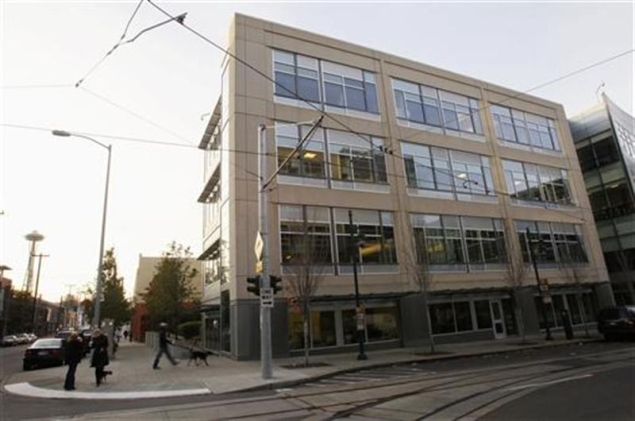
Amazon's influence felt far and offline
Bricks and mortar retailers like Nordstrom Inc and Walgreens have found a way to deal with growing pressure from Amazon, by joining forces with small e-commerce companies.
Through acquisitions, investments and partnerships with smaller, emerging start-ups, large retailers are breaking into new markets and tapping into the social media and marketing expertise of the firm's often tech-savvy founders.
And as consumers keep hitting the mousepad instead of the mall, the trend is likely to keep growing in 2013 and beyond.
U.S. retail e-commerce during the third quarter grew 17.3 percent from the year-ago period to $57 billion, or 5 percent of total retail sales, according to the Census Bureau of the Department of Commerce. Total retail sales rose just 4.6 percent during the same period.
"It's a market-share shift," said Kristen Green, a venture capitalist at Forerunner Ventures who backs online companies such as men's retailer Bonobos and cosmetics company Birchbox.
It is also a change for retailers who have woken up to the threat from Amazon fairly recently.
"When I was meeting with brick and mortar retailers 24 months ago they weren't thinking about online," said Carlo Bronzini Vender, a senior partner at New York-based investment bank Sonenshine Partners who helped advise the sale of Drugstore.com to Walgreens. "Now people are being more proactive about it."
Looking for online smarts
The deals are frequently small, driven by retailers' attempts to master online, rather than to immediately boost sales. Women's clothing site GoJane, which Aeropostale Inc acquired in November, generated just $19 million in sales last year. Aeropostale net sales were $2.3 billion last year.
"They're buying learning, people and energy," said Bruce Cohen, a strategist at retail consulting firm Kurt Salmon. "They're buying labs to test and learn to see what works."
Other recent deals within the last year include Nordstrom's acquisition of flash sales site HauteLook and investment in men's clothing company Bonobos; Walgreens' acquisition of Drugstore.com and PPR SA's partnership with e-commerce site Yoox.
Fast growing e-commerce start-ups pegged by bankers as potential acquisition candidates by large retailers include vintage-inspired clothing site ModCloth, customized-jewelry site Gemvara and eyeglass company Warby Parker.
Missing out on digital expansion can sting. Wal-Mart Chief Executive Mike Duke said at a conference last week his biggest regret was not moving more quickly into e-commerce.
In fact, some prizes may have grown up too fast to be acquired.
Several online retailers have raised large funding rounds at such high valuations that venture capitalists say initial public offerings are likely the only way that investors can make back their money.
Among the list this year are One Kings Lane, a furnishings company that raised $50 million earlier this month; Zulily, a children's clothing company that raised $85 million last month; and Fab.com, a flash-sales site that raised $105 million earlier this year.
Web companies also see real-world benefits to offline partners.
Bonobos, which received a $16.4 million investment led by Nordstrom in April, now has access to the Seattle-based retailer's distribution network. Bonobos' fitted chinos, non-iron trousers and other staples are now available on Nordstrom's website and in their department stores.
"We realized there was a big portion of the available target market that we weren't reaching through online," said Jeremy Liew, a partner with Lightspeed Ventures and a Bonobos investor.
Since then, the company has opened five "offline showrooms" across the country in which men can try on clothing that they can then order from the Bonobos website.
Be Amazon or be different
Some venture capitalists view the rush to invest in online retail with a skeptical eye. Bessemer Venture Partners' Jeremy Levine, who backs companies including online diapers company Quidsi, sold two years ago to Amazon for $500 million, thinks investors need to be on guard.
"Online retail is a natural monopoly business and people aren't seeing it," he says. "These companies are going to start to feel serious pain from Amazon."
While it is relatively easy for smaller sites to generate meaningful sales in the short term, Levine says, the long-term outlook is cloudier. "As soon as Amazon decides it doesn't want you," he says, "they will just crush you."
Amazon's March acquisition of order-fulfillment company Kiva Systems will further widen the gap between the e-commerce giant, brick and mortar retailers and upstarts struggling to keep up, bankers and analysts say.
That is why Fab.com CEO Adam Goldberg says the company focuses on crafting personality for its site so browsing is fun. He also aims to triple the percentage of unique products to 15 percent of merchandise in 2013 from 5 percent this year.
"Nobody is going to beat Amazon selling the products Amazon already sells," says Goldberg.
© Thomson Reuters 2012
No comments:
Post a Comment